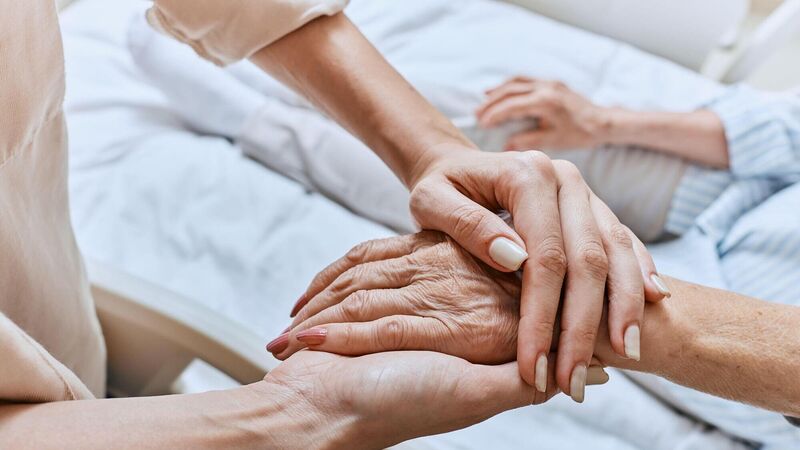8 things everyone should know about Parkinson’s

“People often ask if it is hereditary, but in a general sense, genetic factors do not really play a significant role,” says Swanepoel.
Excitement is building over the development of a ground-breaking technique that enables scientists to detect tiny clusters in the brain that are believed to trigger Parkinson’s disease.
Researchers hope this will help them learn more about how the disease develops, and potentially pave the way for new treatments.
In light of this exciting discovery, here are eight things everybody should know about Parkinson’s...
“The physical difficulties in Parkinson’s disease stem from the progressive death of nerve cells in a small part of the brain called the substantia nigra,” explains Dr Matt Rowett, consultant neuropsychiatrist at Cygnet Health Care. “These cells are responsible for producing dopamine, a chemical messenger that helps control smooth, coordinated movement.
“When these cells die, the brain can’t send movement signals properly, leading to the motor symptoms we often associate with Parkinson’s disease, like slowness and rigidity.”
This means it’s a disease that happens in the brain, which allows the brain to deteriorate and progressively become worse. Dr Henk Swanepoel, lead neuropsychologist at Cygnet Health Care, says: “It is a slow process that can take years and the patient will gradually need more and more care.”
“People often ask if it is hereditary, but in a general sense, genetic factors do not really play a significant role,” says Swanepoel. In most cases, the cause is more or less unknown.”
Some of the early symptoms of Parkinson’s can be subtle and include things like a reduced sense of smell and a change in handwriting.
“You might lose your sense of smell several years, or even decades, before a Parkinson’s diagnosis,” says Jennifer Taylor, helpline service manager at Parkinson’s UK. “Micrographia - small, cramped handwriting - is also often an early symptom of Parkinson’s.
“Words can be crowded together while the size of your handwriting might get progressively smaller as you continue to write. Micrographia is caused by the same processes in the brain that lead to slowness of movement, tremor and rigidity, which all make writing more difficult.”
“People often think Parkinson’s only affects movement, but it can manifest in other ways as well,” says Swanepoel. “Patients can also experience memory loss, cognitive fluctuation and there is also the mental health aspect of it. Patients can become depressed or anxious and sometimes their mental health can escalate into what is sometimes referred to as ‘Parkinsonian psychosis’ where people experience delusions and hallucinations.”
“As it’s a progressive disease, there’s no specific cure. So the main aim is to support patients with their quality of life, and ensure they maintain their dignity as the disease progresses,” says Swanepoel. “Management for Parkinson’s often follows a multidisciplinary team approach. As well as medication, patients will receive mental health support from a psychologist, occupational and physical therapy to help with the movement challenges and maybe other types of therapy as well.”
“Music therapy activates a different part of the brain. It allows a person to regulate their emotion and the rhythm of music can also help with the upliftment of mood and help with depressive symptoms,” explains Swanepoel.
Another benefit of music therapy for people living with Parkinson’s is the social connection aspect of it. “People do the therapy together. They dance together and play music together,” says Swanepoel. “In our service, we have groups between 12 and 15 patients and you can see pleasure they get from the social engagement aspect of it.”
“The disease is highly individualised,” says Rowett. “While everyone deals with dopamine loss, the severity of symptoms and the rate of progression vary widely. Someone might only experience a slight tremor on one side of their body, another might struggle more with balance, stiffness, or non-motor issues like fatigue. Treatment plans must be customised.”







 App?
App?


